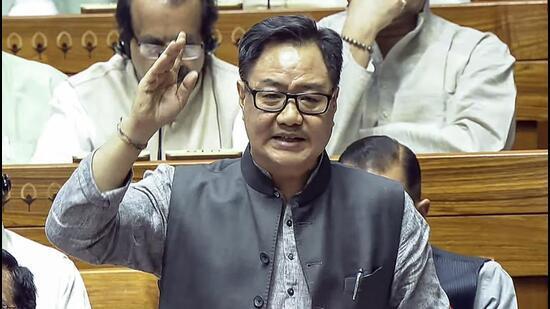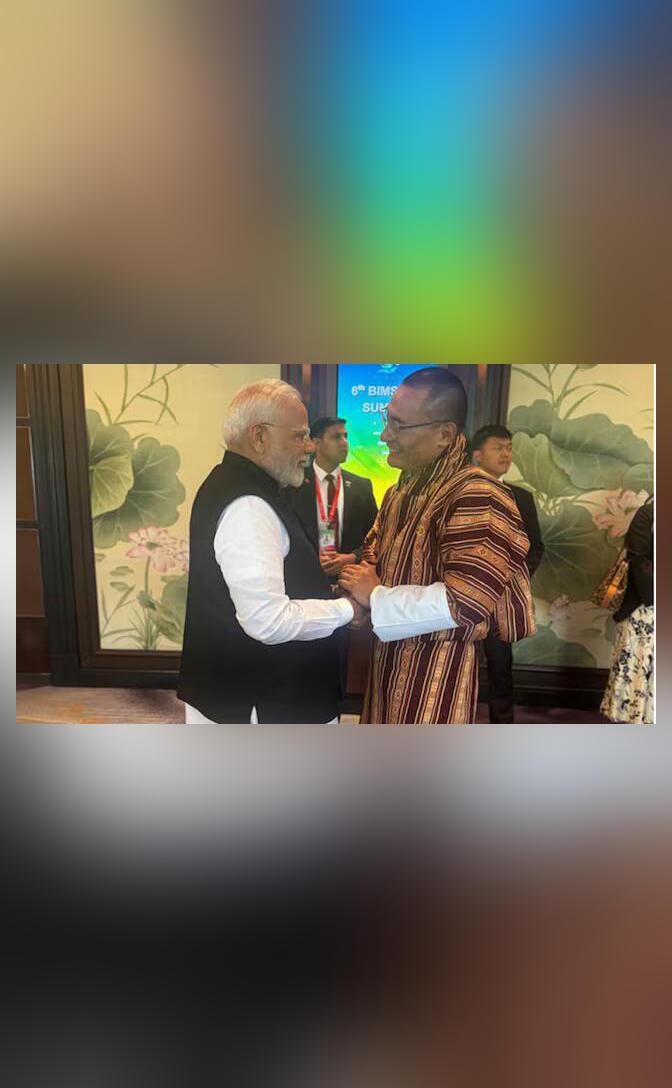
Opposition Creates Confusion & Leaves House: Rijiju in Rajya Sabha
The ongoing Waqf (Amendment) Bill in the Rajya Sabha witnessed a heated exchange between Union Minister Kiren Rijiju and senior member Kapil Sibal on Thursday. The minister criticized the senior member for creating confusion and raising issues in the House without staying back to listen to the replies. Rijiju’s remark was made during the ongoing discussion on the Waqf (Amendment) Bill.
In his statement, Rijiju accused Sibal of creating confusion by comparing the properties of Waqf bodies with those of other religious bodies. Rijiju’s criticism came in response to Sibal’s statement that the Waqf amendment bill aimed to take away the powers of Waqf bodies and hand them over to the government. Rijiju countered by saying that the amendment aimed at strengthening the Waqf bodies and ensuring transparency in their functioning.
The debate on the Waqf (Amendment) Bill has been ongoing in the Rajya Sabha for several days, with the opposition parties expressing concerns over the proposed changes. The opposition parties have been demanding more information and clarification on the proposed amendment, leading to heated exchanges between the government and the opposition.
Rijiju’s criticism of Sibal was seen as a direct attack on the senior member, who has been a vocal critic of the government’s policies. Sibal has been a member of the Rajya Sabha for over two decades and has been a key figure in the opposition’s efforts to hold the government accountable.
The opposition parties have been demanding more transparency and accountability in the functioning of Waqf bodies, which are responsible for managing religious properties and institutions. The government has been accused of trying to take control of these bodies and use them for political gain.
The Waqf (Amendment) Bill aims to replace the Waqf Act, 1995, which is responsible for the management of Waqf properties and institutions. The proposed amendment aims to strengthen the Waqf bodies and ensure transparency in their functioning.
Rijiju’s criticism of Sibal comes at a time when the opposition parties are already on the backfoot in the Rajya Sabha. The government has been using its majority to push through its legislative agenda, leaving the opposition parties with limited options.
The debate on the Waqf (Amendment) Bill is not just about the proposed changes to the law but also about the political implications of the government’s moves. The government has been accused of using its majority to push through its policies without consulting the opposition parties.
The opposition parties have been demanding more transparency and accountability in the functioning of the government, but their efforts have been met with resistance from the government. The Waqf (Amendment) Bill is just the latest example of the government’s efforts to silence the opposition and push through its policies without consulting the opposition parties.
In conclusion, Rijiju’s criticism of Sibal highlights the political tension in the Rajya Sabha and the government’s efforts to silence the opposition parties. The Waqf (Amendment) Bill is just the latest example of the government’s attempts to push through its policies without consulting the opposition parties.
The opposition parties have been demanding more transparency and accountability in the functioning of the government, but their efforts have been met with resistance from the government. The Waqf (Amendment) Bill is a prime example of the government’s efforts to silence the opposition and push through its policies without consulting the opposition parties.
It remains to be seen how the debate on the Waqf (Amendment) Bill will unfold in the coming days. Will the government be able to push through its policies without consulting the opposition parties, or will the opposition parties be able to hold the government accountable? Only time will tell.






